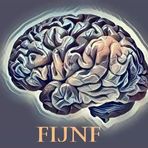The self-efficacy of English teachers in dealing with students with learning difficulties
Keywords:
English, Learning Difficulties, Self-efficacyAbstract
the concept of self-efficacy is considered one of the character’s dimensions of an individual either for teachers or educationalists,
as it is related to the individual’s personal belief and expectations regarding their ability to perform and work, and at the end, it
determines the nature and the extent of the behavior they will do through choosing experience situations, the effort they intend
to do and the strength of their will and persistence to accomplish a situation. Individuals have a system of self-belief that enables
them to control their feelings and ideas. (Bandura, 1986).
According to this, how an individual thinks, believes, and feels affects the manner they behave, as these believes form the main
key for the driving forces of the individual’s behavior, for the individual works on explaining their accomplishments depending
on the abilities they think that they possess which would make them do the maximum effort to achieve success (Bandura 1997).
The effectiveness of self-efficacy can be seen through determining how much effort an individual does in a particular activity,
how present they are in facing ordeals and how solid they are in front of difficult situations. The higher your feeling of selfefficacy is the more persistent you are; people. Who possesses high self-efficacy can deal with problems and difficult activities
more calmly and discreetly? (pajares, 2018).
Working with people with learning difficulties is considered a work that includes educational and therapeutic services for
individuals who need such services. The teacher looks after children who suffer many problems like difficulties in controlling
the environment, difficulties in mobility, movement, and learning due to lack of senses, and insecurity and withdrawal. These
problems require patience, flexibility, experience, and cooperation with other experts. The teacher, also, needs to understand
the nature of the disabled children according to the type of disability, as these children are not very similar (khasawneh, 2021).
Each one of them is a world by itself, and each one requires an understanding of their needs and special circumstances. Also,
teaching methods related to this group require more complex skills and more diverse methods than an average child needs. (Lee
Et Al, 2011)
Self-efficacy is the individual’s beliefs of the abilities they think they possess to manage and apply mental plans to achieve
particular aims (khasawneh,2020). The individual’s assessment of their self-efficacy is evidence of their knowledge of the
abilities they have to do required tasks and control events. It also increases their motivation and ability to achieve their goals
(Bandura, 1997). It is, also, based on the individual’s hypothesis about the ability to achieve particular behavioral choices. Thus,
it is about the individual realizing and evaluating their abilities which enable them to behave in a particular way successfully.
This efficacy, which is evaluated by the individual, affects the type of the accomplished attitude and the ability of endurance
when this behavior is done. (khasawneh, 2021).
even and Davis have shown that the challenges faced by the teachers of disabled students seem discouraging. Many of them
perceive teaching as one of the most difficult aspects of their jobs (Steven and Davis). Thus, the creation of the appropriate
environment for teaching depends on the teacher’s self-efficacy; the teacher who has it helps disables students and develops
their motivation and self-confidence. It is not sufficient for the teacher to have the necessary skills and requirements to do
their jobs( khasawneh, 2018). They should have faith and confidence in their ability to do the expected work under different
difficult circumstances. If teachers do not believe that their actions achieve the desired results, they will have little motivation
to continue (Artino, 2012). Dickey has shown that high self-efficacy for teachers who teach students with learning difficulties
has an important role in motivating students to learn, interact in the classroom and develop high thinking skills. (Dickey, 2017).
In this field, ( You et al, 2019) sought to determine the relationship between the demographic variables for teachers who teach
students with learning difficulties and the beliefs of teachers regarding integrated education and self-efficacy using structural
equation modeling. The results of the study showed the experience of teachers does not have any direct relation with selfefficacy in integrated education. Thus, teaching experiences and training have large indirect relation with their self-efficacy
through their beliefs in integrated education (khasawneh,2020).
(Nuri, 2017)’s study which aimed at knowing the level of self-efficacy that special education teachers have and the relationship
between self-efficacy and psychological pressure for special education teachers in Cyprus. The results have concluded that
there is a moderate level of self-efficacy for teachers compared to a high level of psychological pressure, and there is a relation
between self-efficacy and psychological pressure.
In (Antoniou et al. 2017)’s study, which aimed at knowing the perceptions and evaluating self-efficacy for special education
teachers, the results indicated that the self-efficacy of special education teachers was high. They have also shown that there are
no differences with statistical significance attributable to the variables of gender, experience, and age.
(Guo et al, 2014) carried out a study aimed at describing the self-efficacy for special education teachers in the early childhood
stage, and the relations between self-efficacy and the quality of classes, language acquisition, and illiteracy elimination for
students who have language difficulties. The results showed that private education teachers in the early childhood stage had
high degrees in the self-efficacy scale, and low levels of self-efficacy for special education teachers in the early childhood
stage were linked to a higher level of language acquisition and illiteracy elimination when children who suffer from language
difficulties are in classes provided with higher educational support.
Published
Issue
Section
License

This work is licensed under a Creative Commons Attribution-NonCommercial 4.0 International License.






